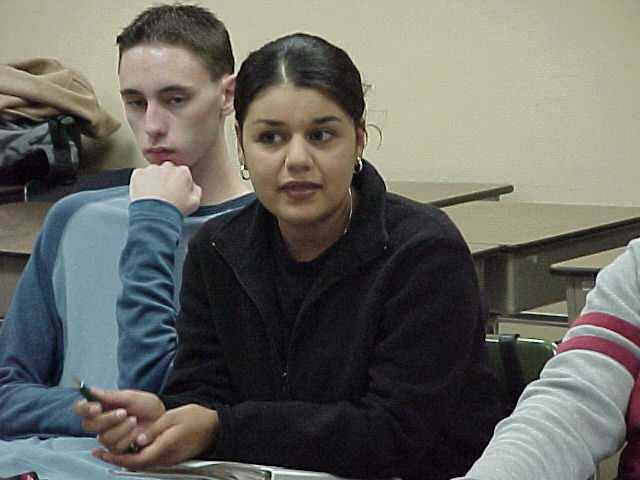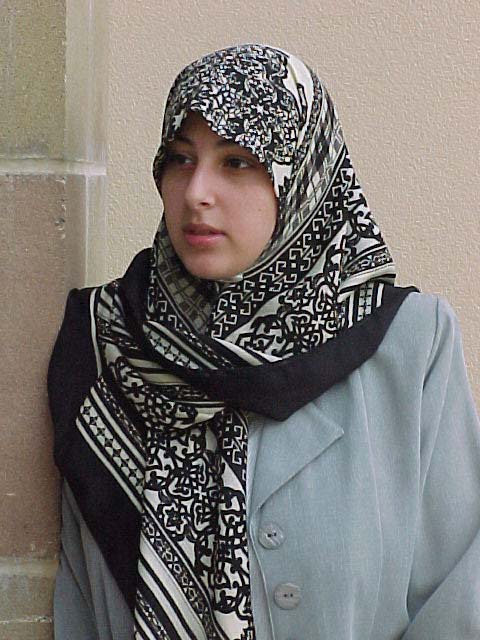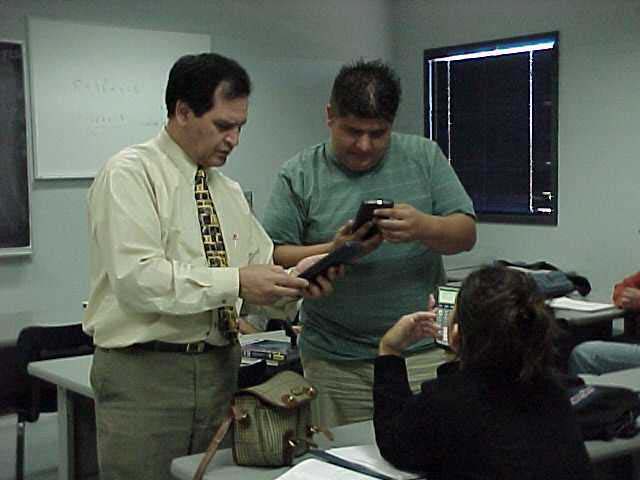In the days and weeks following Sept. 11, the terrorist attacks shocked our nation and the world. Palo Alto students and staff of Middle Eastern descent experienced a heightened sense of sadness and fear.

Soheila Zori, 21, a Communications major at Palo Alto College, is a first- generation American. Her father is Iranian and her mother is Hispanic. Soheila’s reaction to the terrorist attack was very emotional because of the amount of lives lost in New York City and Washington, D.C.
" I cried." she said. "The first person that I thought of was my dad.
I already knew that there were going to be some people who were going to stereotype all people of Middle Eastern descent."
Fortunately, Zori and her family
did not receive any threats because of the attacks like some San Antonians
of Middle Eastern descent.
"My father and I work together," said Zori. "That Tuesday
night after it happened I must have had like ten phone calls from customers
asking if my dad was okay."
The day after the attacks, one of Zori’s professors asked her class
for their reactions. I started to talk and I kind of started to break
down and I stopped myself," said Zori. "After class, one girl
came up to me and gave me a hug and I was like ‘Wow, that was very
nice of her.’"
 |
Sanah Mohamad, 20, an Interdisciplinary Studies major, also attends Palo Alto College. A Palestinian originally born in Venezuela, Sanah and her family moved to the United States when she was a child. Mohamad’s reaction to the terrorist attacks was the same as much of the free world. "It is sad to see the very act that they have done," said Mohamad. "You come here (to the United States) to get away from terrorist acts like that." |
Mohamad did not receive any threats, but the people she knows were targeted.
"People around us have been threatened," said Mohamad. "My brother has been chased. A girl that I know was being followed also. She just pulled up to some construction workers, and they stopped following her."
As regards to Osama bin Laden,
Mohamad thinks negatively about the most wanted man in the world.
"There (are) no words to describe him," said Mohamad. "It
is sad to see a person do something like that. It’s horrible what
he has done."
Some people see Sanah differently now since the Sept. 11 tragedy.
"I walk into a store, and it is like people look at me funny,"
said Mohamad, who wears a traditional veil. "They look at me like
I’m going to do something."
Mohamad gave us an insight about her faith and its foundation.
"The Islam religion condemns acts of violence," said Mohammad. "Islam is a peaceful religion. I know a lot of Americans who have converted into the Islam religion."
 |
Sounny Slitine, a Mathematics instructor at Palo Alto, was born in Morocco. His father is Arabian and his mother is Hispanic. He has lived in the United States for almost thirty years. At first, Slitine was shocked to hear of the terrorist attacks. "At the beginning, I thought it was an accident, said Slitine. "Then all of a sudden the when the second plane hit, I thought |
the killing of massive people is really bad. It is really wrong."
The attacks on the World Trade
Center almost caused casualties in his own family.
"My nephew’s father-in-law was supposed to work in that building
that day," said Slitine. "Thank God he was not in the building
when it happened.
As a follower of Islam, Slitine believes that the media is giving a negative
impression about his religion.
"It is very unfair to judge a religion on one person," said
Slitine. "Osama bin Laden does not represent the whole Muslim religion.
He takes the religion to his own radical extreme."
Slitine compared bin Laden and his Taliban followers to other religious
fanatics.
"Osama bin Laden to the
Muslim religion is what the KKK (Ku Klux Klan) is to Christianity."
said Slitine. "These religions in no way, shape or form teach aggression
towards another religion or anyone else for that matter."
Most Americans continue to dislike and be fearful of Middle Eastern people.
The U.S. government has told citizens not to view Middle Eastern people
differently because of these horrific attacks. They tell citizens not
to give in to fear and to continue to live a normal life. In the words
of President George W. Bush, "Fear and freedom are always at war."